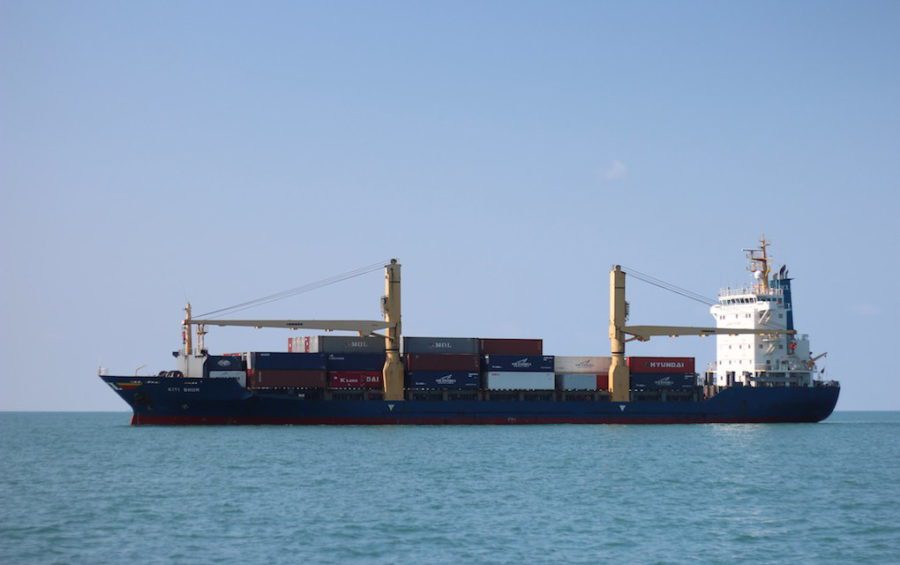Fewer holidays, reduced electricity prices and streamlined export procedures will be enough to offset the costs of losing duty-free trade with the E.U. over human rights concerns, Commerce Ministry spokesman Seang Thay said on Wednesday.
Thay told VOD that the Cambodian economy would be unperturbed by the potential loss of the Everything But Arms (EBA) trade deal thanks to a series of 20 reforms formulated in March, several of which have been implemented.
The measures include less scanning of containers, particularly those containing garments and footwear; streamlining customs procedures, including eliminating the involvement of state agencies Camcontrol and Kamsab; reducing other costs at ports; dropping the price of electricity; and cutting the number of national holidays, he said.
“I’ll give you an example,” Thay said.
“Before the government issued these measures, you exported one container of goods, for example, and you had to do this and that and it cost $100,” he said. “Now the measures are in place, so you don’t need to spend the $100. So, you use that $100 to pay tax if they don’t give us the EBA.”
“You still come out ahead,” he said.
The E.U. in February initiated an 18-month process that could lead to the EBA’s suspension over human rights concerns, particularly related to the dissolution of the country’s main opposition party ahead of a national election in July last year.
The World Bank has estimated that the suspension could cost up to $654 million in trade to the E.U. — Cambodia’s biggest export partner — while the Garment Manufacturers Association in Cambodia has warned of major job losses among the sector’s 750,000 workers.
Thay’s rudimentary sketch of the costs and benefits for Cambodian exporters, however, at least points to necessary areas of economic reforms, according to economists.
Jayant Menon, lead economist for trade and regional cooperation at the Asian Development Bank, said that tackling the price of electricity and costs of trade could provide a significant lift to the economy.
“If electricity prices decrease significantly, and there are wide ranging trade facilitation reforms, they could more than offset the impact of EBA withdrawal,” Menon said.
Even if it does not lose EBA preferences, Cambodia should be looking at reducing electricity prices and streamlining trade anyway, he said.
“This will allow Cambodia to improve its long term competitiveness, and diversify its export markets so that it is not overly reliant on a few destinations. The threat of EBA withdrawal should be used as an opportunity to press ahead with much needed reforms,” he said.
In a Cambodia Economic Update issued in May, World Bank economists said the contribution of transport and logistics to Cambodian export values amounted to 14 percent, two to 3.5 times higher than Thailand, Vietnam or Malaysia.
Meanwhile, tariffs to the E.U. without the EBA would range from 12 percent for garments and 16 percent for footwear, the World Bank report said.
“Trade costs weigh heavily on Cambodia’s export structure and exporting firms’ performance,” it said.
Cambodia’s second-biggest export market, the U.S., offers some tariff exemptions but already taxes most garment and footwear products.
However, political analyst Em Sovannara doubted that the government’s measures could do any more than halve the potential EBA losses.
“The cost of raw materials is still high in Cambodia, so production is expensive and makes it impossible for producers to compete with neighboring countries such as Vietnam and Thailand where they have cheaper transportation and goods than us,” Sovannara said.
Collective Union of Movement of Workers president Pav Sina added that there was no downside to making political reforms and retaining duty-free trade with the E.U. He called on the government to protect the EBA trade preferences and bring about progress in human rights and democracy.
“If the government meets the needs of the E.U., the government would gain many benefits,” Sina said. “Firstly, we would keep the economy growing. Secondly, we would attract more investors to Cambodia. Thirdly, we would provide more employment opportunities for our people … and reduce migration.”
Additional reporting by Michael Dickison
(Translated and edited from the original article on VOD Khmer)













